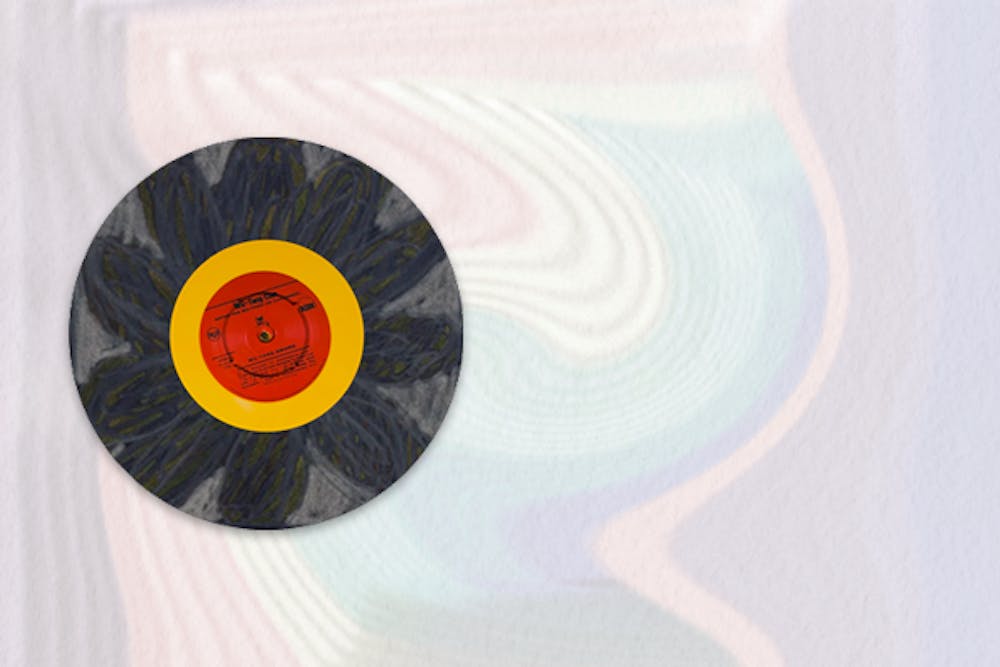Transportive. That’s the best way to describe the experience of listening to the new self–titled album by Florist—less a band than an entity of folk music, conjured by songwriter Emily Sprague in solitude and in communion with a trio of friends. To make this record, the group lived and improvised together in a Hudson River Valley house as an exercise in resynthesis.
That sense of place is summoned instantly by the wistful opening instrumental “June 9th Nighttime,” which creaks and sways like a rusty porch swing, bathed in chirping crickets and rustling pine needles. Right before the song cuts off, it speeds up and slows down like a record player during a power outage. Suddenly, the listener’s only illumination is the moon, the stars, and the intermittent glow of lightning bugs. You’re there with the band on their screened–in porch as they draw and redraw the borders of their music.
At first, Florist’s 19 tracks may seem daunting, but a journey through the album reveals that more than half aren’t full songs at all. They’re atmospheric interludes that capture the band’s lovingly crafted interplay, which sound spontaneous at first but become more meticulous the closer you look. Some of the shorter pieces mimic wilderness phenomena caught on tape, and some of them actually are. The guitar solo on “43” lands like a flash of lightning, and even the twinkles of microelectronica that appear on “Bells Pt. 1, 2 & 3” or “Sci–fi Silence” sound bioluminescent.
Sprague has elevated her songwriting to new heights and lifted some of the album’s full songs to transcendent peaks alongside it. “Red Bird Pt. 2 (Morning)” envisions her mother’s death through the eyes of her father in one of the most crystal–clear yarns she’s spun. “I can hear you singing still / Wake up in the morning, let the morning come / She's in the bird song, she won't be gone” she sings.
The personal and natural press up against each other on Florist songs, like “Spring in Hours” with the lyric “The way we speak our names / It’s the same as the blowing breezes across.” On “Feathers,” Sprague intones, “One day to come, it will never feel real to miss you,” and like all of her disclosures, it’s so specific and yet so universal that the “you” can be any you, the “I” any I. As she puts it, twirling her voice like a ribbon: “Come now, I’m ready to be infinitely open.”
Of course Emily Sprague was born in the Catskills; she made an album that sounds exactly like growing up in its woods and mountains. Give Florist an hour with your ears open and eyes closed, and they’ll take you there, too.
LIYL: Big Thief / Adrienne Lenker, Sufjan Stevens, Moon Pix by Cat Power, Mono no aware, nature journaling, group hugs, the smell of wood smoke, falling asleep to the sound of rain.







